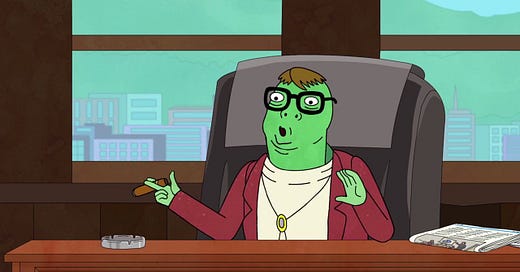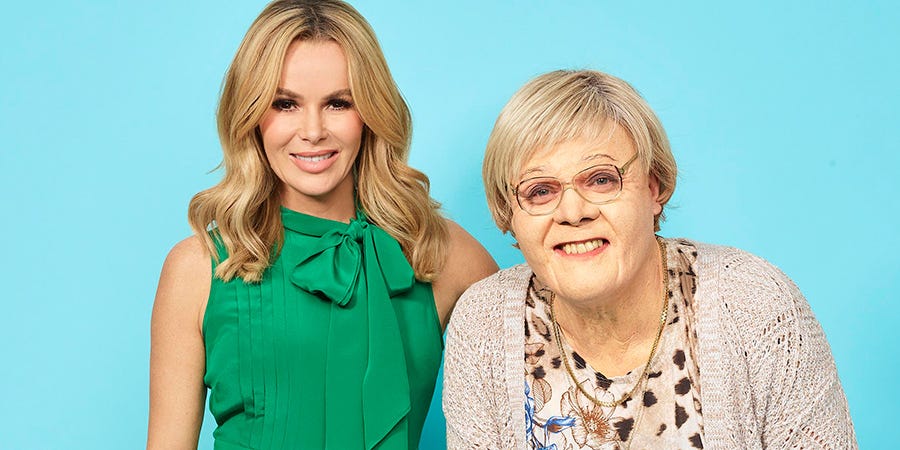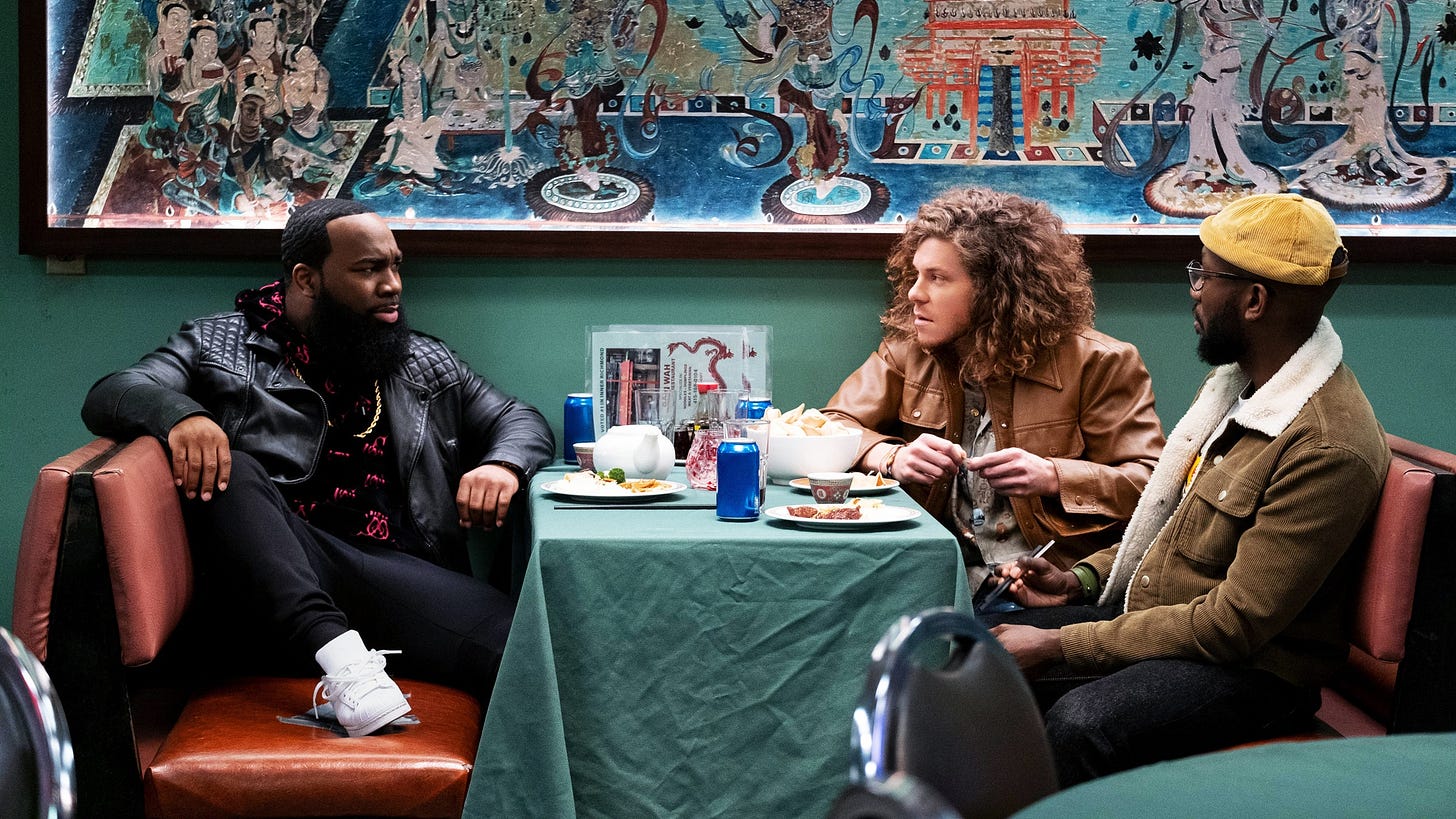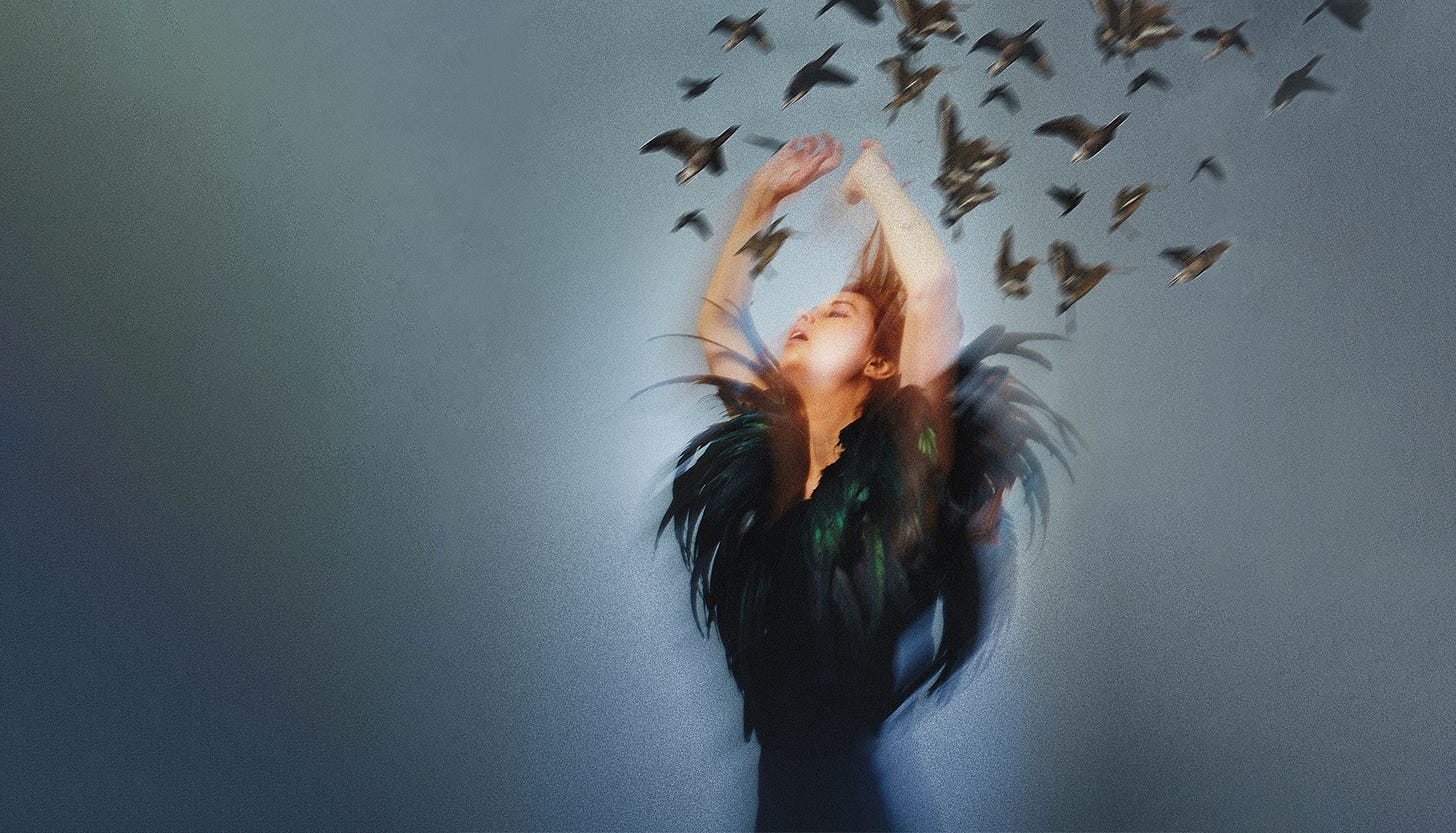Happy Friday!
I’m writing this at 11pm on Thursday night and, wow, a suitcase of booze. Boris Johnson might not have been at the most recently revealed parties, but it’s mad to suggest that all this would have happened under a more straightlaced prime minister. He should be held accountable, not some luckless underling.
This week’s newsletter turned into a pop-culture special, for no real reason except serendipity.
Helen
Why Don’t Jews Play Jews? (Guardian)
In Bojack Horseman, there is another character called Lenny Turteltaub. He’s a turtle, but a very Jewish one, a very Jewish Hollywood producer stereotype, and he’s played by JK Simmons, who is not Jewish. There has been no outcry about that, and Waksberg has seen no need to get anguished about it. This is true across the board: Jewish is the minority that you can cast with actors not of that minority, and hardly, until very recently, hear a whisper of concern. What you can hear, still, if you do raise the issue, is an extremely vehement reaction.
David Baddiel has done some great work on anti-semitism, and its neglect by the left, but hmm, I think he’s lost me here. This character is . . . a turtle? However, I found this piece thought-provoking, and I do agree with him that the “rules” on casting and identity are enforced with a ferocity which suggests they are well-established and coherent, which I don’t think they are.
Baddiel’s piece reminded me of something I wrote in 2015 about the mysterious exception to identity-casting we’ve carved out for drag, which in turn reminded me that I used to write jokes I wouldn’t dare to write any more.
If you have a Times subscription, here’s a recent piece by Caitlin Moran on losing her love of drag: “The Holden Girls [where Leigh Francis plays “Nan”] joins Mrs Brown’s Boys—in which Brendan O’Carroll drags up. That’s two sitcoms in which the starring, older woman is actually played by a man. I’ve looked through the comedy listings of the past two years, and can find no British comedies about older women in which the older woman is actually played by an older woman.”
Sidenote: Leigh Francis, who plays Nan in The Holden Girls, apologised last year for playing black celebrities such as Craig David by wearing latex masks in Bo Selecta, so it’s quite bold that he’s gone back to the impersonation well.
Counterpoint: Stephen Pollard, ex-editor of the Jewish Chronicle, argues the opposite side to Baddiel, citing Tom Hardy’s Jewish gangster in Peaky Blinder as Exhibit A. “Tom Hardy, of course, is about as Jewish as bacon. But every element of his performance is perfect, every nuance spot on.”
Hollywood’s New Rules (Common Sense)
The politicization of content production, creatives said, was going to be the industry’s death knell. “Especially this past year, ideology has become more important than art,” Quentin Tarantino said in June on Bill Maher’s show. “It’s like ideology trumps art. Ideology trumps individual effort. Ideology trumps good.”
Exhibit A: “Woke.”
The comedy series, which premiered on Hulu in September 2020, should have been the statement on America right now. It’s about a black cartoonist who is awakened to systemic racism after a run-in with the cops.
The show started off on the right foot: the showrunner, Aeysha Carr, and the writers room she oversaw, delivered a strong batch of early scripts, according to several writers on the show.
Then the producers weighed in. “The notes were all so sanctimonious,” one writer said. “It was never supposed to be as serious as it was. We wanted a thought-provoking show that made fun of woke culture and explored notions of what a black artist’s life would be like in San Francisco among white liberals. But we could only punch down at the safest targets”—white men.
The irony was not lost on anyone: The black writers, starting with Carr, were more willing to take risks and poke fun at antiracist orthodoxy.
Staying on topic, kinda, this was an interesting reflection on the collision of political trends and Hollywood’s capitalist imperatives.
Your Bubble Is Not The Culture (Atlantic)
One of many things that made the late Roger Ebert great was that he retained the ability to watch something as a conventional moviegoer and rate it accordingly, even if as a critic, he’d seen 100 similar films and had a different reaction from that perspective. He knew that most people who go to the movies are not looking for the next great work of cinema, but rather something with which to enjoyably pass an afternoon with their families. So he would do fancy film events where he’d discuss the technicalities of cinematography in the work of Martin Scorsese, and then turn around and give four stars to Iron Man.
It’s actually pretty hard to make this pivot. Here’s an example from my own life. I can’t bring myself to watch Red Notice, the Netflix action comedy starring The Rock, Gal Gadot, and Ryan Reynolds. To put it gently, it’s not the sort of film designed to tickle the senses of cultural epicures. It also became the No. 1 movie in 93 countries, leading Netflix to commission two sequels. Yet I doubt you’ve read much about the film or its fans, because it’s geared toward audiences and not critics like me*.
The examples in this are stunning—critics asserting that “everyone” now finds Parks and Recreation, or the works of JK Rowling, or Lin-Manuel Miranda unbearably problematic and cringe, even as they continue to be wildly popular and lucrative.
* I actually watched Red Notice and found it perfectly pleasant but then I am a basic at heart.
I Want My Life Back (Atlantic)
To publicly question the current level of restrictions is to invite accusations from your more COVID-averse friends, or even strangers on social media, that you hate doctors, reject science, and actively want people to die. I am not anti-lockdown; I lived through three of them without a single illicit wine-and-cheese party or Christmas quiz, unlike senior members of the British government. I got my vaccines the minute I was allowed to. I wear a mask whenever doing so is mandated. But I’m done, profoundly done. Or at least I’m what my colleague Derek Thompson has called “Vaxxed and Cautious Until Omicron Burns Through and Then Prepared to Be Done.”
Whew. This piece I wrote on Covid ennui led to a full-bore 72-hour drubbing online, the kind where people send you messages telling you to kill yourself. As such things always do, it also led to lots of people texting to say they agreed with every word.
Ultimately, I agree with Oliver:

By my count, that’s now the third item in this newsletter which makes a very good argument for why journalists (OK, me) should abandon Twitter and let it return to nature/sow its fields with salt/allow it to become the sole property of that guy who wrote 52 Times Britain Was A Bellend. Damn it, I might actually have to do this.
Bluestocking recommends: One Woman Show by Liz Kingsman, at the Soho theatre. A very funny, very pointed monologue taking the piss out of the whole Fleabag-esque genre of female confessional comedy shows, as well as some of the stuff I talked about in Difficult Women (ie the “go Coco Chanel you sleep with that Nazi you absolute girlboss!” tendency).
The run has been extended for a second time, so you know it’s good.
Quick Links
“As a man, I have been made to feel uncomfortable on hundreds of occasions because of the outfit worn by a woman.” I couldn’t believe this Substack piece—on how men are victims of sexual assault from women wearing sexy dresses—was real, so I went and read the guy’s other work to check. If anything I enjoyed “were the Nazis socialists?” even more, because it contains the line “But it must be conceded that Hitler was not a trustworthy man.”
Tyler Cowen: “Keep the bigger picture in mind. It doesn’t much matter who controls the English department at Oberlin College. But it would be nice if the Saudis moved to allow more rights for women.”
“More often in these books, wealth’s rotten underbelly is purely psychological: There are no wrongful beach houses in A Little Life, no ill-gotten hors d’oeuvre. Luxury is simply the backdrop for Jude’s extraordinary suffering, neither cause nor effect; if anything, the latter lends poignancy to the former.” Andrea Long Chu on Hanya Yanagihara’s latest book. When I watched the four-hour stage adaptation of A Little Life, the torments piled on Jude were so relentlessly and preposterously sadistic that I snorted involuntarily three-quarters of the way through when his partner died in a car crash. It was too much. (Vulture)
“Amis knew about not liking other people but he had little of Larkin’s appetite for solitude. For him, ‘not seeing people makes me want to see some till I see some.’ In later years, Amis could not bear to be alone, except when he was writing. Larkin, on the other hand, came to find almost any company unbearable, including—in the end—his own.” Ian Hamilton reviews Kingsley Amis’s letters to Philip Larkin (LRB, 2001)
Someone please write a sitcom about the Chinese agent of influence who infiltrates. . . Barry Gardiner’s office. Alongside everything I read about it, the Curb Your Enthusiasm music plays in my head. (Backstory here in the Mail.)
See you next time!









Seems I am a pedantical dog: https://www.phrases.org.uk/meanings/strait-and-narrow.html
Oh dear! 'Strait-laced' please